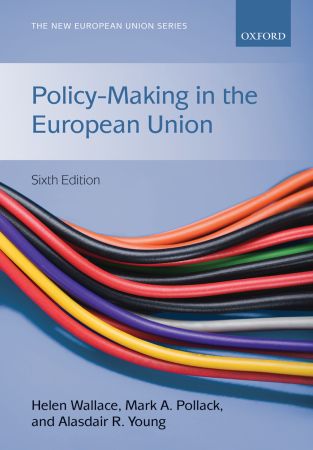POLICY-MAKING IN THE EUROPEAN UNION
44,00€
Offers detailed, authoritative coverage of contemporary EU policies and policy-making, covering everything a student needs to know
The wide range of up-to-date policy case studies allows students to understand the significance and substance of individual policies, as well as how these policies are made
Excellent learning aids, including facts boxes, key concept boxes, further reading, web links and discussion questions, provide additional guidance on topics
Attention is given to the impact of the Lisbon Treaty, ensuring students are kept informed of the latest constitutional developments
New to this edition:
- A new chapter entitled 'The European policy process in comparative perspective' helps to link theory and analysis
- A new chapter on energy policy addresses developments in this crucial area
- The concluding chapter focuses on the resilience of the EU policy-process in light of the enlargement to twenty-seven member states, the global financial crisis and constitutional changes brought about by the Lisbon Treaty.
- An enhanced overview chapter explains the aims and organisation of the book
The policies of the European Union profoundly affect the lives of people in Europe and around the world. The new edition of this highly successful textbook outlines how and why such decisions are made, as well as the key challenges faced by policy-makers in the current political and economic climate.
Policy-Making in the European Union begins by clarifying the institutional framework of the EU and the analytical approaches used to understand it. A wide range of crucial and illustrative policies are then explored in detail by subject experts.
This volume includes new chapters on ways of analysing the EU's policy process and on energy policy. A central theme to the volume is how the expansion to twenty-seven member states has affected policy-making across the different policy sectors. The conclusion reflects on how this challenge and the protracted constitutional stalemate have affected policy-making in the EU. It also explores the impact of the financial and economic crises that have struck Europe over the past several years.
The sixth edition is fully up-to-date, and is the ideal text for all those with an interest in the policy-making of the European Union.
Readership: Undergraduate students in the second or third year of a Politics, International Relations or European Studies degree and postgraduate students.














